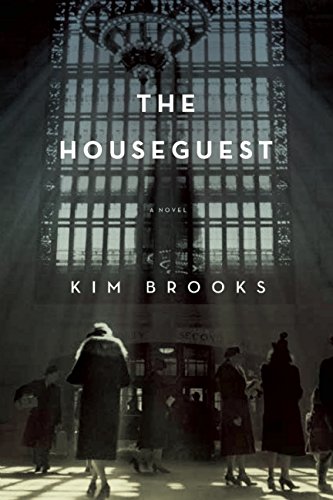
Why Hasn’t This Aspect of the Holocaust Been Explored in Fiction?
 It is the summer of 1941 and Abe Auer, a Russian immigrant and small-town junkyard owner, has become disenchanted with his life. So when his friend Max Hoffman, a local rabbi with a dark past, asks Abe to take in a European refugee, he agrees, unaware that the woman coming to live with him is a volatile and alluring actress named Ana Beidler. Ana regales the Auer family with tales of her lost stardom and charms and mystifies Abe with her glamour and unabashed sexuality, forcing him to confront his own desire.
It is the summer of 1941 and Abe Auer, a Russian immigrant and small-town junkyard owner, has become disenchanted with his life. So when his friend Max Hoffman, a local rabbi with a dark past, asks Abe to take in a European refugee, he agrees, unaware that the woman coming to live with him is a volatile and alluring actress named Ana Beidler. Ana regales the Auer family with tales of her lost stardom and charms and mystifies Abe with her glamour and unabashed sexuality, forcing him to confront his own desire.
As news filters out of Europe, American Jews struggle to make sense of the atrocities. Some want to bury their heads in the sand while others want to create a Jewish army that would fight Hitler and promote bold, wide-spread rescue initiatives. And when a popular Manhattan synagogue is burned to the ground, the characters begin to feel the drumbeat of war is marching ever closer to home.
Lilith’s fiction editor, Yona Zeldis McDonough, talks with debut novelist Kim Brooks about how she finds hope even in the most hopeless of stories.
YZM: What inspired you to write The Houseguest?
KB: I began writing not long after I read Daniel Mendelssohn’s The Lost, about his struggle to uncover the specific fates of his family members killed in Europe during the war. One part in particular stayed with me. Mendelssohn reflects at one point that we always think of the Holocaust as something that happened, when really it never stops happening, because our present is shaped by the negative space of what was destroyed. In an alternative present where the Holocaust never happened, he thinks about how he’d grow up going to Eastern Europe every summer to visit the cousins that were never born, the ones who would have been born to his murdered relatives. I’d never thought of it in that way, but through this expression of sadness and longing, it occurred to me that there’s a way in which American Jews are cultural orphans, a way in which we live with the shadow of what’s not there. That was the moment, if I had to pick one, when I became focused on (or obsessed with) this question of the American experience of the Holocaust.



